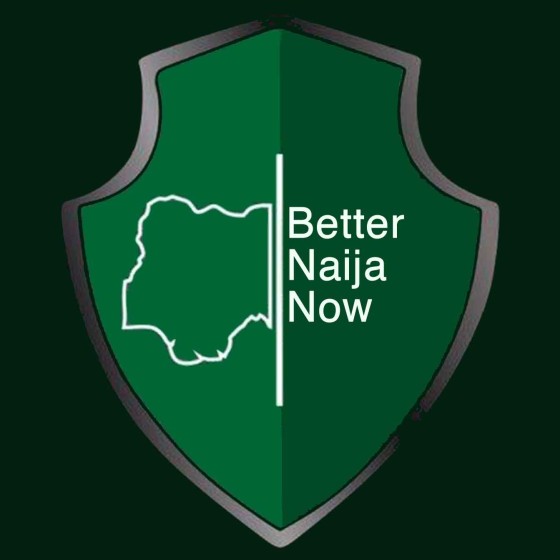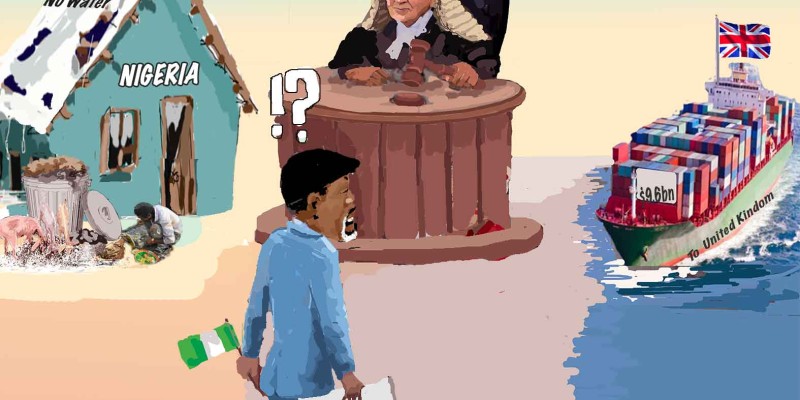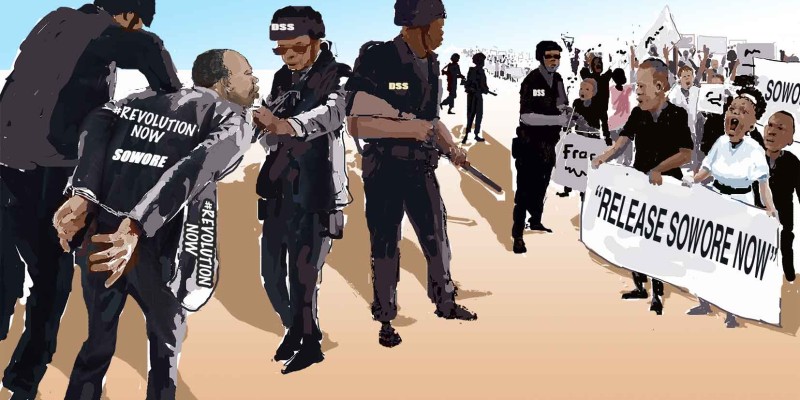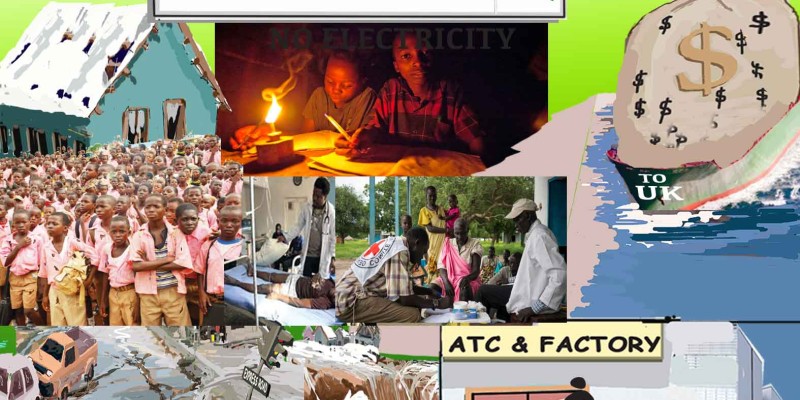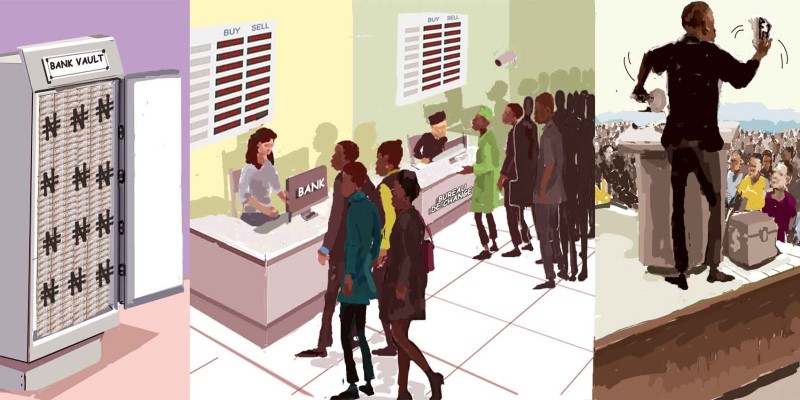HAUNTING ECHOES OF A SAGE (2)
By: Sir Henry Olujimi Boyo (Les Leba) republished in January 2019
INTRO:
Last week, this column republished “Haunting Echoes of a Sage” The article was the summation of an interview by Tayo Odunlami, which echoed sentiments in line with this column about Nigeria’s economic situation and how to address it. All republications can be found in the archives using the below link.
(See www.betternaijanow.com for this series and more articles by the Late Sir Henry Boyo)
Today’s republication is the second part to the article republished last week. It continues the interview with the late Prof. Samuel Aluko and Tayo Odunlami, and emphasizes the need to revisit these recommendations considering the deepening economic hardship faced by a majority of Nigerians. It is evident that brilliant minds have left words of wisdom and literal ‘road maps’ to free Nigeria from economic hardship, but it is left to Nigeria’s leaders to take the necessary steps to enact change.
As you read through the below article taking note of previous events and rates, keep in mind its first republication (2019), a clear indication that things remain stagnant even as we face the year 2023.
………………………………………………………………………………………………
The late Prof. Samuel Aluko was probably Nigeria’s best-known Economist, until he passed on after 82 years in 2012. In addition to his intellectual prowess as a notable scholar and sage, he also served as Chairman of the National Economic Intelligence Committee, in Abacha’s Administration, and despite Nigeria’s international pariah status, arguably, provided the robust intellectual anchor to the military Dictator’s successful Economic Programmes, which notably, stabilized the Naira around N80=$1 with a relatively paltry $4bn foreign reserves base.
Nonetheless, as we stand on the threshold of 2019, with Nigeria’s economy precariously balanced on the sharp edges, of inflation, high unemployment and a heavy debt burden, there may be wisdom in examining the alternative perspectives suggested by Aluko for our economic freedom.
A summary of the distinguished Professor of Economics interview, with TAYO ODUNLAMI of The NEWS magazine, in February 2004, was published, in this column last week. In the first part of that interview, Professor Aluko responded to questions on the potential impact of Naira devaluation, fuel pricing, privatization and foreign investment. In Part (2) of the same interview, published today, Samuel Aluko, also bares his mind on the value of International Trade Organisations, Corruption, and the distinctive role of Banks in driving the economy; furthermore, Aluko extols the superior Management of the Nigerian economy, during the despotic regime of Sani Abacha, between 1993-8; please read on.
Q: “So what is the solution (to our Economic adversity)?”
A: “Government has been pursuing a negative action. Government must encourage local industries with cheap funds for them to grow. Government must also provide all the necessary infrastructure, and provide technical education and jobs.”
“It is better not to send somebody to school than send him, and you don’t give him a job. You cannot train people and leave them jobless. They become dangerous, and this is why you have sophisticated armed robbery in the cities now.”
“It is not difficult to develop an economy when you get the value of your currency right. Even in agriculture, when seeds are planted, you hear there’s no money to harvest them, there’s no money because, the value of the currency is gone! The value of whatever they’re even harvesting now is more than 10 timesless than what they were getting 10 years ago with a much stronger Naira.”
Q: “But the President has many Advisers who should be telling him all these…”
A: “He is giving money to a large number of people who are doing nothing.”
Q: “Nigeria is a member of many international Organisations- NEPAD, WTO, etc. How has our membership of these organizations advanced economic progress?”
A: “Charity should begin at home.” The British say “Take care of the pennies and the pound will take care of itself.” “We have not even taken care of our Kobo, not to talk of the Naira taking care of itself.”
Development is homegrown; we have to develop a positive mental attitude to it. When I was at the London School of Economics, as a student, I was always telling them the same thing, some of them would criticize me, but at the end, I made distinction. They asked me to stay back and work, but I said no, I was going back to my country. They knew I was right and they were wrong.”
Q: “You’ve been advocating more government participation in the economy rather than privatization. But look at government’s parastatals like NEPA. The more money it gulps, the lesser its efficiency, and the officials are allegedly corrupt.”
A: “What is the value of the money being pumped into NEPA? What is the value of the entire budget of the government today? The value of money being pumped into NEPA is nothing compared to what they received in 1980 with a much stronger Naira! By the time NEPA buys a new transformer, the money is finished! So because they cannot afford new transformers, they buy used ones which pack up in no time. That is what they do. I was in London three years ago, with the General Manager of Western Electric, who told me, he was “sorry for Nigeria!” He projected that, in the next half a century, we won’t have stable power supply, because, according to him, our officials and contractors buy “used transformers”, even when they were advised that the “used ones would soon pack up.”
“Obasanjo keeps saying when he was leaving as head of State in 1979, he left about 15 aircraft for Nigeria Airways; but now, there is none. But the money that would be used to buy 15 aircraft then, would probably not be enough to buy one now. Even the cost of maintaining one now is a problem. There is no way the value of the naira now (N127-N130=$1 against N0. 60=$1 previously) can propel the economy.”
Q: “But most governments in advanced economies are not directly involved in energy supply and aviation.”
A: “No, governments are. In fact, it was when Enron was privatized, in the U.S. that it collapsed. Ministers and Directors are milking the treasury because government is shirking its responsibilities. During the Abacha administration, Ministers would want to do everything on expenses undertaken by parastatals under their ministries. Abacha would ask them “what happened to the budget of your ministries?’’ Whatever one can say about Abacha, it is a fact that he had a stronghold on the economy, especially on the value of the naira and budgetary spending by ministers.”
Q: “But there was corruption then.”
A: “It is worse now, the problem in any economy is not corruption per se but management. This corruption we talk about, it is the private sector that corrupts the public sector. So, what is all this emphasis on the private sector, as the catalyst to turn around the economy?”
Q: “What role have banks been playing as an engine of growth in developing the country?”
A: “The banks have become an engine of distress; they have been destroying the economy. The banks have been ensuring that the naira value gets worse, so they can milk the nation, they’re rent seekers. They control savings interest, at only about 4 percent, but hike lending rates to about 30 percent. Their salaries are not in tune with the situation in country. The Central Bank is not playing its supervisory role; when I was in government, the Central Bank financed and monitored industries and controlled the market. This is not happening today. The CBN is government owned, why must the Governor appointed by the President be independent? Why?”
Q: “Is the CBN independent?”
A: “It is independent. It is the CBN that controls the government. Elsewhere, the Central Bank intervenes in harmonising rates, as it is done in America, in England, in Germany. Here, the CBN allows the banks to control rates.”
Q: “It has been discovered that Abacha himself siphoned billions of naira out of the country, so why do you extol his management?”
A: “When Abacha was in power, the oil price was about $10-12/barrel, the highest was 15. Now Obasanjo is getting over 30, 32. Where did Abacha get the dollars to steal?”
Q: “Has it not been proven that he stole?”
A: “Iam not saying Abacha didn’t steal but Abacha managed the economy far better than Obasanjo is doing. Obasanjo will ruin the economy. We never had budget deficits the way we are doing now. We never had supplementary budgets.” (CONCLUDED).
Incidentally, although President Obasanjo while in office, had described Sam Aluko as senile, nonetheless, in his own judgment, Tayo Odunlami of The NEWS magazine, noted that the “articulation, erudition and patriotism” of the distinguished Professor was never in doubt throughout the interview! Notwithstanding, Naira rate is presently above N300=$1, while Nigeria has, regrettably, since become the fastest producer of poor people worldwide, despite crude price often exceeding $40/barrel.
SAVE THE NAIRA, SAVE NIGERIA!!


